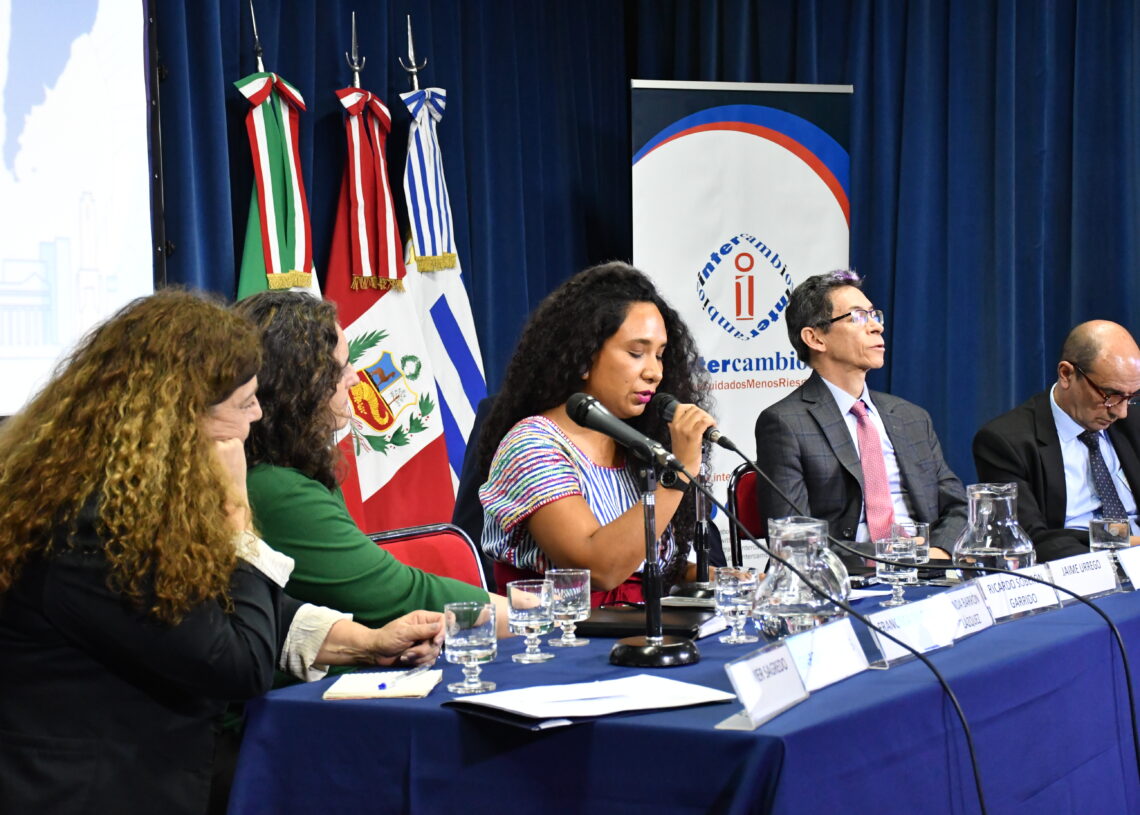The Santa Rosa storm arrived in Buenos Aires at the end of August, as expected every year. Surrounded, as always, by great uncertainty about its intensity, impact and consequences, especially in the areas of greatest vulnerability and risk for the population. A few hours earlier, the intense days of the VIII Latin American Conference on Drug Policy came to an end in the city, considered one of the broadest and most diverse forums on the subject in the region, a convergence of multiple visions, in which the COPOLAD III programme participated, providing the opportunity to have the National Drug Authorities of half a dozen countries in the region, who contributed their analysis and assessment of the problem and the response strategies they are implementing. In addition, other international agencies and civil society organisations presented evidence of the need to transform policies and gave a voice to the different groups and social actors involved.
During three days of presentations, reflection and rich debate, this Latin American forum – organised by Consorcio CONFEDROGAS and Intercambios Asociación Civil, together with other strategic partners – allowed us to approach the diverse experiences and positions of those social groups that suffer most directly from the consequences of the phenomenon and of a “fight against drugs” that extends over time without managing to consolidate effective advances in the control of supply, nor in the improvement of the lives of the people, families and communities that are directly affected.
Contexts of criminalisation
In contexts marked by criminalisation, stiffer penalties and prohibitionism, countries’ capacity to respond seems to be running out, at the same time as evidence of the social problems associated with the growth of illicit economies accumulates. The superimposition of factors of social vulnerability accentuates the effects of the most repressive responses to drugs: reducing the resources required for prevention, social and health care and care, deepening exclusion and inequality in the territories and feeding back into the problem in its most worrying dimensions.
Faced with this hemispheric scenario of relative stagnation, it is undoubtedly an obligation to stop and listen to the testimony of those who live the reality and consequences of the drug phenomenon in all its dimensions on the front line, and whose participation is more important than ever for the design and adequate focus of policies. It is here where the immense value of meeting and exchange spaces is discovered, where the institutions involved can find a dialogue with social agents that validate the orientation and viability of the strategies, as well as potential allies for their implementation and monitoring.
Country roadmaps
On the last day of the event, the COPOLAD team and the participating countries met in a workshop to launch the first proposals to advance in strategic lines of development and rights of their respective national drug policies. Windows of opportunity identified in different contexts and which, translated into lines of action, will make it possible to begin to configure roadmaps for each country.
Like the Santa Rosa storm that hits localities in South America every year, the same could be expected in the face of the complex drug phenomenon that has been identified in different contexts and that, translated into lines of action, will allow to start configuring country roadmaps. Through the National Observatories, Research Centres, territorial care mechanisms and civil society organisations, more and more is becoming known every day. This presents us with the great challenge of reorienting or discarding what has been clearly ineffective and unsustainable and opting for a more humane and innovative policy vision and intervention models, respectful of rights, values that COPOLAD III promotes in its interventions. A commitment made by the international organisations, countries and actors that met under the auspicious skies of Buenos Aires.






